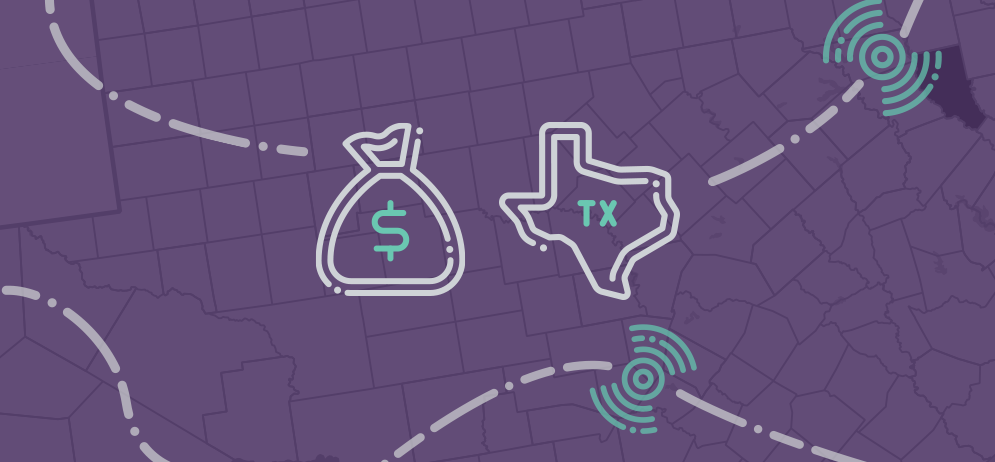Across Texas, school districts are facing tighter budgets and growing demands for student services. Yet many may be leaving significant Medicaid reimbursement dollars on the table, not because services aren’t being provided, but because districts aren’t fully confident in how to capture reimbursement for every eligible area.
Understanding the Texas Medicaid Opportunity
Under the School Health and Related Services (SHARS) program, Texas districts can receive federal reimbursement for health-related services provided to students with disabilities under the Individuals with Disabilities Education Act (IDEA). These dollars can help fund programs that support all students.
But many districts only tap into a fraction of what’s possible. Some have even scaled back or “given up” on parts of their Medicaid billing because they worry they’re doing it wrong or lack clarity about what’s allowed. The opportunity isn’t just in doing more billing, it’s in doing smarter, more comprehensive billing.
Why Districts Miss Out
Several challenges prevent districts from maximizing their SHARS revenue:
- Complex Regulations: Medicaid rules are intricate, and Texas has its own unique layers of compliance that can intimidate even seasoned administrators.
- Fear of Noncompliance: Many districts hesitate to bill for certain services because they’re uncertain whether documentation or IEP references meet state standards.
- Knowledge Gaps Around Service Areas: Districts often understand speech, OT, and PT billing — but feel less confident about others, leading to selective participation.
- Limited Vendor Support: Some billing systems or service providers fail to provide proactive guidance, leaving districts to figure it out alone.
The issue isn’t a lack of effort, it’s a lack of clarity and confidence. That’s where expert guidance and integrated systems can make a difference.
The Overlooked Goldmines: Key Service Areas Districts Underbill
Most Texas districts consistently bill for speech, occupational, and physical therapy. However, four other areas consistently go underutilized, often because of confusion, outdated processes, or fear of errors.
1. Specialized Transportation
Recent SHARS updates have made transportation one of the most misunderstood service types. Many districts backed away due to changes affecting how transportation aides are classified under personal care. But specialized transportation is not the same, and it carries significant reimbursement potential. Beyond interim claims, transportation drives large cost-report returns since districts can include expenses like vehicle maintenance, driver salaries, and fuel.
2. Nursing Services
Nursing is another area where schools frequently miss out. Because nurses often serve students outside of special education, districts assume these services aren’t reimbursable or worry about adding workload. However, with the right system integrations, for example, importing documentation from the student information system, nurses don’t have to double-document. With proper training and RMTS participation, this can become a seamless, high-value reimbursement area.
3. Personal Care Services
Recent SHARS changes have led to confusion about what counts as personal care and how to document it. Yet, aides and paraprofessionals often provide extensive daily assistance that qualifies. When correctly tracked and linked to the IEP, these services can deliver meaningful additional revenue.
4. Speech Therapy
Although widely billed, speech services are also evolving. Districts need to ensure documentation reflects the latest regulatory changes to remain compliant and avoid underclaiming. Speech remains one of the highest-value areas when optimized correctly.
Although widely billed, speech services are also evolving. Districts need to ensure documentation reflects the latest regulatory changes to remain compliant and avoid underclaiming. Speech remains one of the highest-value areas when optimized correctly.
Rebuilding Confidence and Capturing More Revenue
The path forward isn’t about “doubling” reimbursement through shortcuts, it’s about educating your team, identifying gaps, and providing support to safely and confidently bill for every eligible service.
Districts benefit from a guided review of their current processes to answer key questions:
- Which SHARS service areas are we currently billing for?
- Are there reimbursable services we’ve opted out of due to uncertainty?
- What’s the potential value of expanding into those areas?
- How can we streamline documentation to reduce staff burden?
By combining data-driven insights with proper training and system support, districts can uncover significant untapped Medicaid revenue — without overburdening staff or compromising compliance.
Let’s Uncover What’s Possible
Whether your district currently bills Medicaid or has scaled back due to uncertainty, Frontline can help you identify missed opportunities, from transportation to nursing and beyond, and ensure every reimbursable service is accounted for.
A Medicaid “checkup” with our experts can reveal how much potential revenue is waiting to be reclaimed, funds that can be reinvested directly into student success.
Talk to a Frontliner today to uncover hidden Medicaid revenue and maximize your SHARS impact.
Dr. Taylor Plumbee
Dr. Taylor Plumblee is an experienced education executive with demonstrated success in education management and marketing. She joined Frontline Education in 2021 and is the Manager of Product and Solution Marketing with a focus on Student & Business Solutions including School Health Management, Special Program Management, Student Information Systems, and Data & Analytics.
